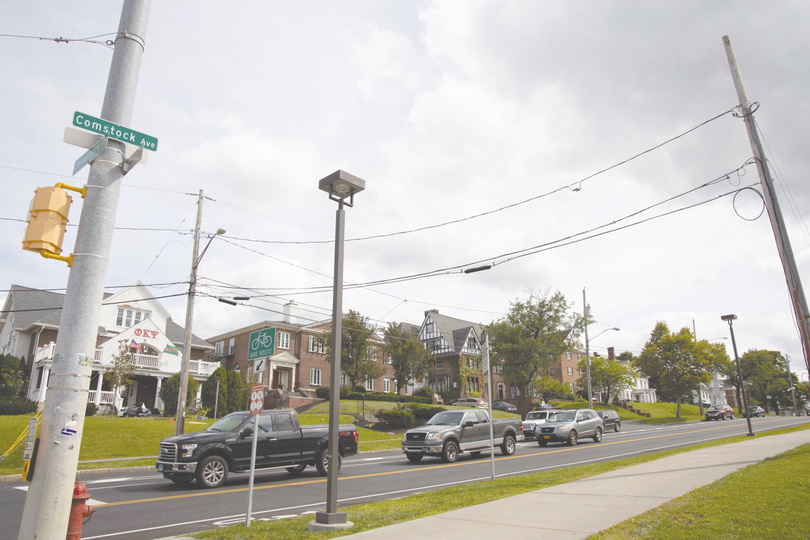Collaboration is needed for Greek unity on campus

Sarah Lee | Contributing Photographer
UPDATED: Feb. 26, 2020 at 5:33 p.m.
When touring Syracuse University as an admitted student, most people drive by Walnut Park, where there are an array of Greek houses from the National Panhellenic Conference and Interfraternity Council. However, what many prospective students do not see are the various Greek councils that are inclusive to people of color, and do not have fraternity or sorority houses. While these Greek organizations are more visible to marginalized students, it is unfortunate that not everyone recognizes their hard work and contribution to the campus community. These organizations should be better recognized as a permanent presence on the SU campus, in part through cooperation with existing NPC and IFC organizations.
The National Pan-Hellenic Council, also collectively known as the “Divine 9”, is made up of nine historically Black Greek organizations, seven of which currently operate at SU. The council was started at Howard University in 1930 and was first brought to Syracuse through the Alpha Phi Alpha Fraternity, Inc.. The Divine Nine was formed to open the doors to Black college students to be represented in a higher education institution and expand opportunities in education and beyond.
It is extremely important for students on campus to be aware of the various Greek organizations on campus in order to celebrate Greek unity. This includes organizations comprised of mostly minority students, like NPHC organizations.
NPHC organizations also play an important role in celebrating Black history and including minority students in a Greek life environment that is stereotypically white.
“I think because NPHC is really rooted in a lot of history, a lot of Black history. Especially in this country there is a historical component that I think people are aware of, but don’t know the details,” said Gabrielle Richardson, a fall 2019 initiate of the Illustrious Iota Upsilon Chapter of Alpha Kappa Alpha Sorority, Inc. She is also the vice president and program chair for the SU chapter.
There is an almost de facto segregation between IFC and NPC organizations and the rest of the Greek councils. Most IFC and NPC fraternities and sororities only have social and philanthropic events with each other and exclude other Greek councils. However, it is allowed within Greek council bylaws to collaborate with NPHC and other organizations like NALFO and MGC, all of which have primarily minority student membership.
Oftentimes, NPHC organization members feel left out of the greater Greek community at SU.
“I think especially from the NPHC side, and looking from the minority community… other students do know that there are other organizations but they don’t necessarily know it’s NPHC or understand the Divine Nine concept, so I do think there’s a lack of knowledge there,” Richardson said.
Sororities aren’t the only NPHC organizations that see a notable divide between NPHC and NPC and IFC Greek organizations. Kwaku Agyemang is a fall 2019 initiate of the Phi Beta Sigma Fraternity, Inc.
“I think there is a lack of knowledge in what each organization stands for and represents, and the different organizations in each council, but overall I think people understand these are Black frats, these are multicultural frats, these are white frats, and there’s a divide there,” he said.
Agyemang blamed traditional Greek culture for the divide between the organizations, “When you join a fraternity or sorority you should be joining people who have similar ideas and traditions… what’s familiar to you,” he said.
Collaboration between NPHC and other Greek councils can create unity on campus and solve the Greek divide. By including NPHC and other multicultural Greek organizations in events that usually only include NPC and IFC Greek organizations, SU Greek life can finally unify and create a stronger campus culture.
At the end of the day, every single person chooses their own Greek organization, but it does not mean they still cannot come together and collaborate to create Greek unity on campus.
Feryal Nawaz is a junior political science major. Her column appears bi-weekly. She can be reached at fnawaz@syr.edu. She can be followed on Twitter @feryal_nawaz.




